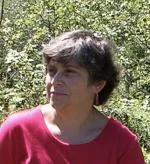
Surveillance or Security? The Risks Posed by New Wiretapping Technologies
Susan Landau, Radcliffe Institute for Advanced Study at Harvard University & CRCS
Tuesday, March 8, 12:00 pm
Griswold Hall Room 110, Harvard Law School
This talk is part of a lens on privacy and security, which will highlight various talks this semester that focus on issues related to privacy and security in digitally networked environments
The United States has moved large portions of business and commerce, including the control of critical infrastructure, onto IP-based networks. This reliance on information systems leaves the U.S. highly exposed and vulnerable to cyberattack, yet U.S. law enforcement remains focused on building wiretapping systems within communications infrastructure. By embedding eavesdropping mechanisms into communications technology itself, we build tools that could easily be turned against us. Indeed, such attacks have already occurred. In a world that has Al-Qaeda, nation-state economic espionage, and Hurricane Katrina, how do we get communications security right?
About Susan
Susan Landau is a fellow at the Radcliffe Institute for Advanced Study at Harvard University for the 2010-2011 academic year. Her book, Surveillance or Security? The Risks Posed by New Wiretapping Technologies will be published by MIT Press in February 2011; she is also the co-author, with Whitfield Diffie, of the 1998 Privacy on the Line: The Politics of Wiretapping and Encryption. From 1999-2010 Landau was at Sun Microsystems, first as Senior Staff Engineer and then as Distinguished Engineer. There she concentrated on the interplay between security and public policy, and she briefed government officials in both Washington and Europe on such disparate issues as security risks in surveillance mechanisms, digital rights management, and cryptographic export control. In 2009 she testified for the House Science Committee on Cybersecurity Activities at NIST's Information Technology Laboratory. Landau is currently a member of the Commission on Cyber Security for the 44th Presidency, established by the Center for Strategic and and International Studies, and serves on the Computer Science and Telecommunications Board of the National Research Council and on the advisory committee for the National Science Foundation's Directorate for Computer and Information Science and Engineering. Before joining Sun, Landau was a faculty member at the University of Massachusetts and Wesleyan University. Landau is the recipient of the 2008 Women of Vision Social Impact Award, a Fellow of the American Association for the Advancement of Science, and an ACM Distinguished Engineer.
About the Privacy and Security Lens
In spring 2011, the Berkman Center for Internet & Society at Harvard University and the Center for Research on Computation and Society (CRCS) at the Harvard School of Engineering and Applied Sciences (SEAS) will highlight a series of talks that will focus on issues related to privacy and security in digitally networked environments. Events associated with this “lens” will seek to foster discussion and explore novel solutions to digital security and privacy issues, and aim to surface and engage with some of the technological, legal, political, economic, and behavioral tensions at work within these topics. This cross-disciplinary initiative will build on current CRCS and BCIS collaborative efforts, and seek to bring multiple perspectives and approaches to these issues.